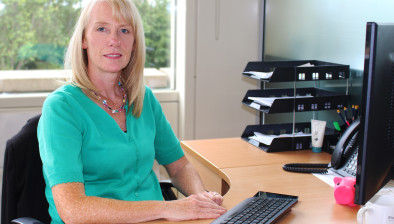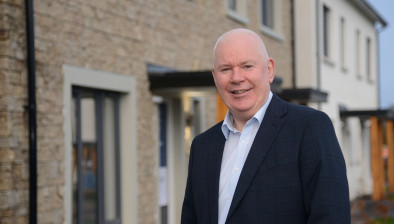Angela Currie: Heating innovation must work for the people it’s meant to serve

Angela Currie
As Scotland and the wider UK accelerate towards net zero, there’s a clear focus on heating innovation and energy efficiency. But Hanover Scotland’s CEO, Angela Currie, argues that many solutions – particularly the rollout of heat pumps – have not been designed with the needs of older residents in supported housing in mind.
Across Scotland, we are all being encouraged to modernise heating systems, reduce carbon emissions and move towards net zero. But when it comes to supported housing for older people, the conversation is far from straightforward.
At Hanover, many of our developments rely on communal heating systems - often ageing boilers that serve both individual homes and shared areas. These were once seen as cost-effective and reliable models, but times have changed. Residents rightly want more control over their heating and they want to understand what they’re paying for. Communal systems, in their current form, don’t always deliver that.
So, we’ve taken a step back and started to ask deeper questions: What actually works? What does a future-fit heating system look like in older people’s sheltered housing developments? And crucially, what do our residents need?
We’re currently trialling a number of innovations to better understand performance - not just on paper, but in real homes. We’ve installed sensors to gather data and partnered with tech providers to analyse how heating systems perform across different flats in different developments.
The goal is to separate assumption from reality. Because while one tenant might say their heating is expensive and inefficient, their neighbour may say the opposite and both can be right given how much of this is about personal choice.
We’ve also been assessing heat pumps, which are widely promoted as the sustainable solution. But so far, our experience has raised concerns. These systems take hours to warm a space.
If you’re 84 and a cold snap hit, that delay isn’t just an inconvenience, it’s a health risk. However, that’s not to say we aren’t committed to change. Far from it. But we must make space for nuance. There’s a risk in rushing to adopt solutions that haven’t been designed with our tenants or specific housing types in mind.
Some of our colleagues and councils in England have adopted heat pumps as a source of heating, and so the onus is on us to learn the lessons from those further advanced than us, because the housing sector cannot be a passive recipient of innovation, we have to lead, challenge and push for better.
We believe modernising heating systems is about more than swapping one technology for another. It’s about designing approaches that are fair, efficient, and responsive to the people using them. That might mean simply moving to metering individual usage in communal systems.
What’s clear is that we need practical options that actually work in the homes we have now, not just theoretical ones built for new builds or ideal scenarios.
At Hanover, we’re learning every day. And as we move into the next phase of our strategy, we’ll continue to advocate for realistic, resident-focused heating solutions. The journey to net zero must include everyone and that means making sure older people aren’t left behind.







